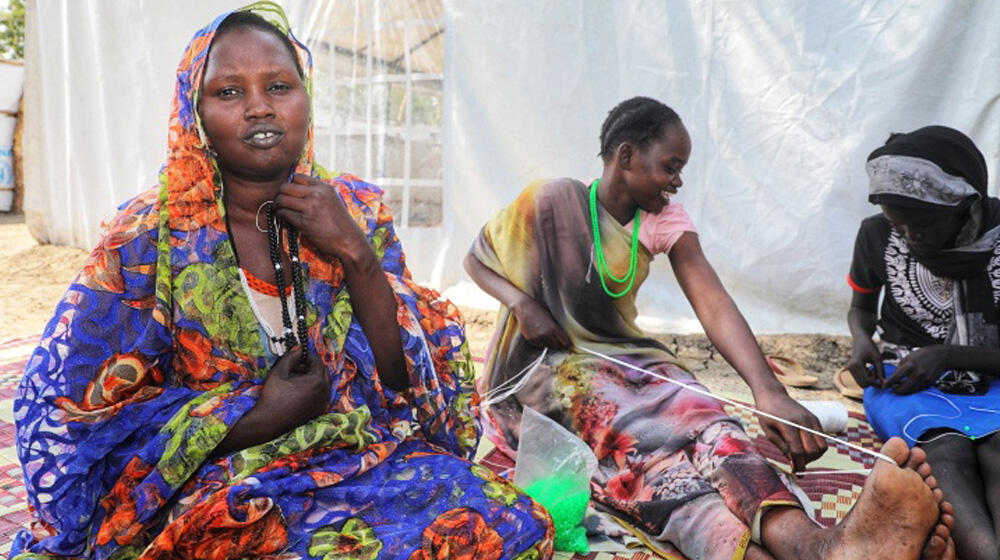Mother-of-four Nyandeng Duot, displaced from Sudan following the outbreak of Sudan conflict, often goes for long periods without food or clean, drinkable water in Protection of Civilian (PoC) site. A similar situation she shares with so many women in the PoC and also Bulukat Transit Site as they wait to be transported to their final destination. She numbers among the many women who, made widows by the war, take on the burden of breadwinner for their families. Yet scarce resources and the uncertainty of how long they will have to live displaced from their homes exact a psychological toll.
As she described living conditions that are particularly difficult for women and girls, her tears fell. “Our safety and health are worrying as we take long, risky journeys in the bush outside the camp to collect firewood, which exposes us and our daughters to rape. We do not know how long we are going to stay here,” she said.
Mary Nyagai, another internally displaced person living at PoC, described being overburdened by the task of caring for children especially girls are being compelled to drop out of school as a result of rape, early and forced marriage, she said. In addition, they need food, education, and health services. “Here in the camp, it is only women [who are] responsible for the children. Women go and fetch firewood to sell so that they survive, but that is increasingly difficult work because of the attacks. There is no one to stand with us,” she said. Conflict has a devastating impact on women, girls and young people the world over – and a perfect example is the situation in South Sudan. Women in conflict situations face bleak prospects, with a loss of access to health services and other basic needs, and are exposed to a higher risk of violence, especially sexual and gender-based violence.
Displaced women in the transit site and PoC endure tough conditions. Living in poor shelters in harsh climatic conditions, they often go without food and live in fear for their own safety –especially that of their daughters, who are particularly vulnerable. They also have limited access to much-needed reproductive health services, which can be life-saving.
UNFPA with support from various donors is supporting IDP camps, PoCs and Transit Sites with provision of reproductive health services, supplies, skills, and GBV prevention and response services through partners for women and girls, to ensure safe births and provide family planning, in addition to other regular services. However, collective response to address the plight of displaced women and girls in South Sudan, as they require adequate resources to meet their needs, including the right to live decently and free from violence.


